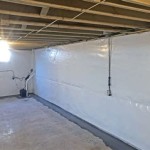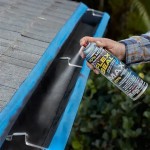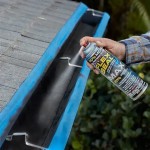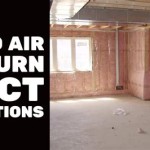Do I Need a Dehumidifier in My Basement?
Excess moisture in your basement can lead to unpleasant odors, health problems, and structural damage. Running a dehumidifier can help control moisture levels and improve air quality. But how do you know if you need one? Here are some signs to look out for:
Musty or Damp Odor: A musty or damp odor in your basement is a clear indication of excessive moisture. This can be caused by water vapor from the ground, leaking pipes, or poor ventilation.
Condensation: Noticeable condensation on windows, walls, or pipes in your basement suggests high humidity levels. Condensation occurs when warm, humid air comes into contact with cool surfaces.
Mold or Mildew Growth: Mold and mildew thrive in damp environments. If you see mold or mildew growing on basement surfaces, it's a strong indication that your basement needs dehumidification.
Deteriorating Materials: Prolonged exposure to moisture can lead to the deterioration of basement materials such as wood, drywall, and metal. If you notice any warping, rotting, or rusting, you may need a dehumidifier.
Health Issues: High humidity can trigger respiratory problems such as asthma, allergies, and congestion. Additionally, mold growth can release harmful spores that can aggravate health conditions.
Factors to Consider:
In addition to the signs mentioned above, consider the following factors to determine if you need a dehumidifier in your basement:
- Climate: Basements in humid climates are more prone to moisture problems.
- Basement Usage: If you use your basement frequently for activities like laundry or storage, it can generate more moisture.
- Ventilation: Poor ventilation contributes to moisture buildup. Ensure your basement has adequate ventilation, such as exhaust fans or open windows.
Choosing a Dehumidifier:
If you decide a dehumidifier is necessary, consider these factors when choosing one:
- Capacity: Choose a dehumidifier with a capacity appropriate for the size of your basement.
- Features: Some dehumidifiers offer additional features such as auto shut-off, adjustable humidity levels, and air filtration.
- Budget: Dehumidifiers vary in price depending on their features and capacity.
Maintenance and Tips:
To ensure optimal performance and prevent mold growth, follow these maintenance tips:
- Regularly empty the water reservoir.
- Clean the filter according to the manufacturer's instructions.
- Keep the dehumidifier in a central location for maximum airflow.
- Close windows and doors to trap moisture in the basement.
By following these guidelines, you can effectively control moisture levels in your basement and create a healthier, more comfortable environment.

How To Choose A Basement Dehumidifier Frontier Foundation Crawl Space Repair Press Release

Expert Basement Dehumidifier Installation In New Jersey

What Is The Best Basement Dehumidifier Reviews

Troubleshooting A Dehumidifier That S Not Working How To Handle Nonfunctional Or Ineffective Basement

Does Dehumidifier Need To Run All The Time In Basement Preair

What Is A Best Dehumidifier For Basement Aloraircrawlspace

Do I Need A Dehumidifier In My Basement Preair

Do You Need A Home Dehumidifier How To Know Youtube

What Are The Benefits Of A Dehumidifier In Basement

Why Your Basement Needs A Dehumidifier
See Also








